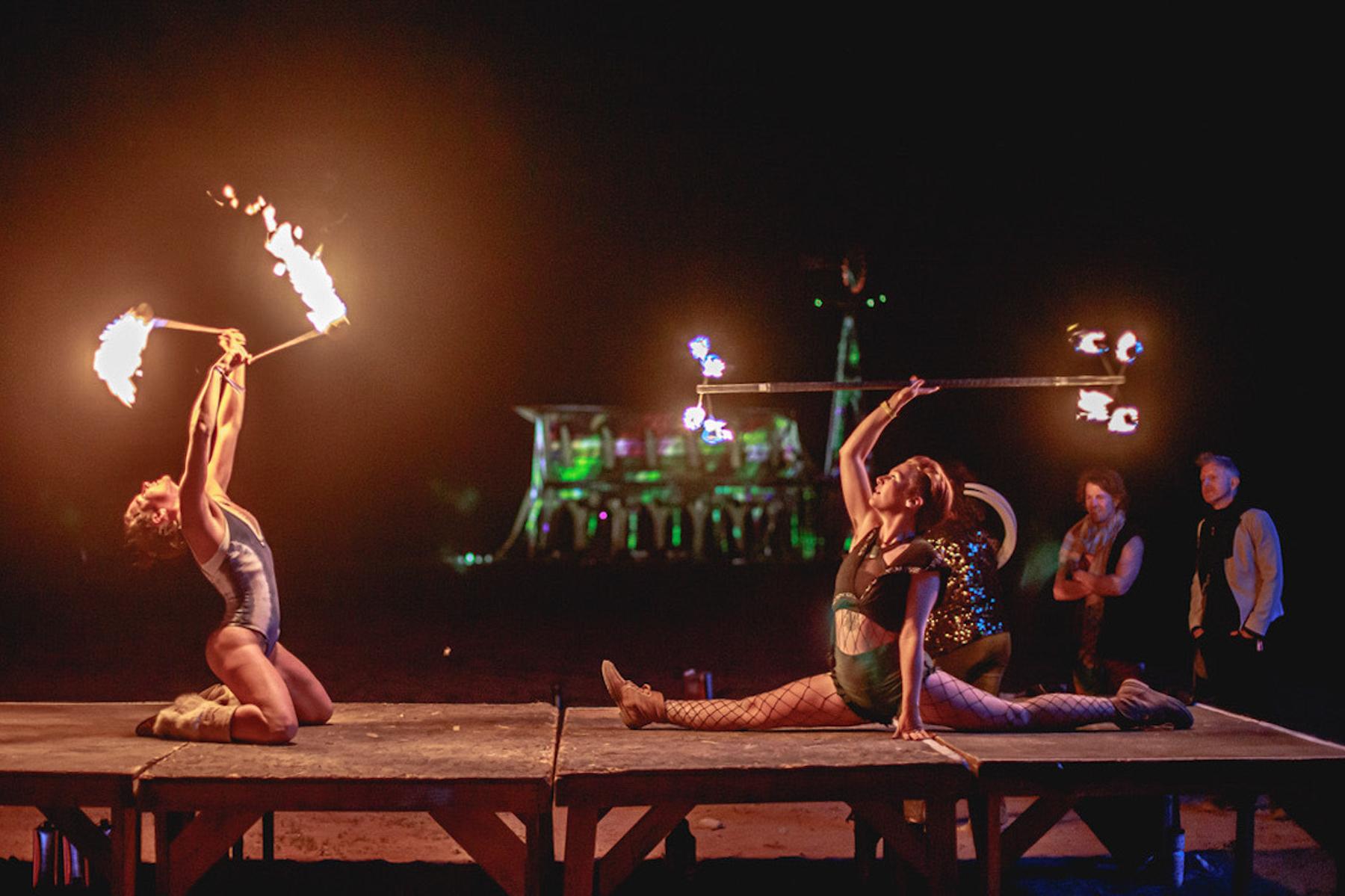
More than 300 people gathered in the desert outside of Naturita in southwestern Colorado last summer at the Planet V festival for a weekend of music, dancing, art and community.
“It actually began as an event during COVID … it was called Burning Van,” said Natalie Binder, who runs Camp V, the site of an abandoned mining town where the gathering took place.
The inaugural event took its name from the annual festival in the Nevada desert. “When Burning Man was canceled, friends of ours approached us and said ‘Why don’t we just do a mini get-together so that we can still see each other?’”
Last year’s event was more organized — and a lot bigger — than the semi-spontaneous iteration that popped up during the early days of the pandemic. And this year, Binder is hoping to attract even more — 500.
A rebate from the state helped make all this possible. Binder was able to recoup about $5,000 of the total $55,000 cost to run the festival last year, and hopes to tap into the funding again this year. The aid is particularly beneficial for events happening at a more remote locale like Naturita in Montrose County, she said.
“It's … easier to go to a place like Telluride,” Binder said. “There's just more of a following. There's more population, there's more abundance .… There's a lot of challenges to holding an event in a rural community, especially one that's really unknown."
Colorado's tourism industry still needs a hand, especially group travel
While pandemic aid is mostly a thing of the past, there’s one industry in Colorado that’s still getting a boost. That’s the state’s travel business. To lure event planners to spend their money here, Colorado is offering a cash rebate that covers up to 10 percent of eligible hard costs for events that attract large groups. As of November 30, more than $4 million in rebates had been approved.
“We've expended about half of the funds allocated to the cash rebate at this point,” said Elizabeth O’Rear, the director of grants and funding for Colorado’s economic development office. “We're 18 months through the program and we have another 18 months left.”
That means eligible events have until the middle of next year to get some of the money, which can pay for things like food, event space, A/V equipment and entertainment. The money was carved out of the state’s general fund. Whatever isn’t used, presumably, will go back into it, unless state legislators decide to do something else with the money, O’Rear said.
The program includes money for everything from conferences, business meetings and trade shows, to festivals, concerts and sporting events. Even weddings are eligible. The top three categories account for the lionshare of the money: Conferences account for more than half of the funds approved so far — more than $2 million — followed by business meetings, with about $748,000 in rebates, and weddings, with $281,000.
The requirements and guidelines are the same for all the different kinds of events, according to O’Rear.
“[It’s’] events that demonstrate an economic impact,” she said.“You have to have a certain amount of minimum eligible hard costs. You have to have a certain number of eligible (hotel) room nights.”
Officials launched the state program after Colorado’s travel industry took a big hit when COVID-19 first shut everything down. Things have since picked back up, especially in the state’s resort areas, which have been bursting at the seams with visitors.
But the recovery has been uneven. In particular, group travel is taking longer to come back. There are several reasons for the lag.
Those types of events have to be planned — and paid for — well in advance, and are at risk of being canceled if COVID cases start to climb. On top of that, a lot of group travel revolves around business travel, which has been much slower to bounce back than leisure travel.
Businesses, event planners and travelers may be learning to live with a post-COVID world
The pace of rebate applications tracks what’s happening with COVID-19 caseloads pretty closely, according to O’Rear. She said it shows how vulnerable some parts of the tourism economy are to the pandemic, and how quickly things can change.
“With that first six months we had a significant amount of applications,” O’Rear said. “Then cases increased, we saw a decrease in applications, which … you could assume or presume that potentially organizations that might be hosting events were now a little more leery of that and were waiting to see what would happen.”
Judging by the volume of recent applications, people are feeling more confident about booking events, even though the pandemic is still here. That could be a sign that businesses and event planners are learning to live with the uncertainty.
“Especially this past summer, we had … four months in a row where we had more applications and more funding approved than the previous months. So we saw a real uptick,” O’Rear said.
Just this month, a rebate was approved for the Curling National Championships, which will take place at the Denver Coliseum next month.
The influx of applications could mean that businesses won’t need such inducements for much longer. But, Binder from the Planet V festival stresses that every little bit helps when it comes to reviving and sustaining Colorado’s multibillion-dollar tourism industry.
“When you can bring even just three to 500 people into an area that only has a population of 500 … each person that's spending money on gas and supplies and groceries… it's a huge economic impact to a really small community,” Binder said. “Even though it might not seem big in the scale of things that happen in other parts of the state.”









